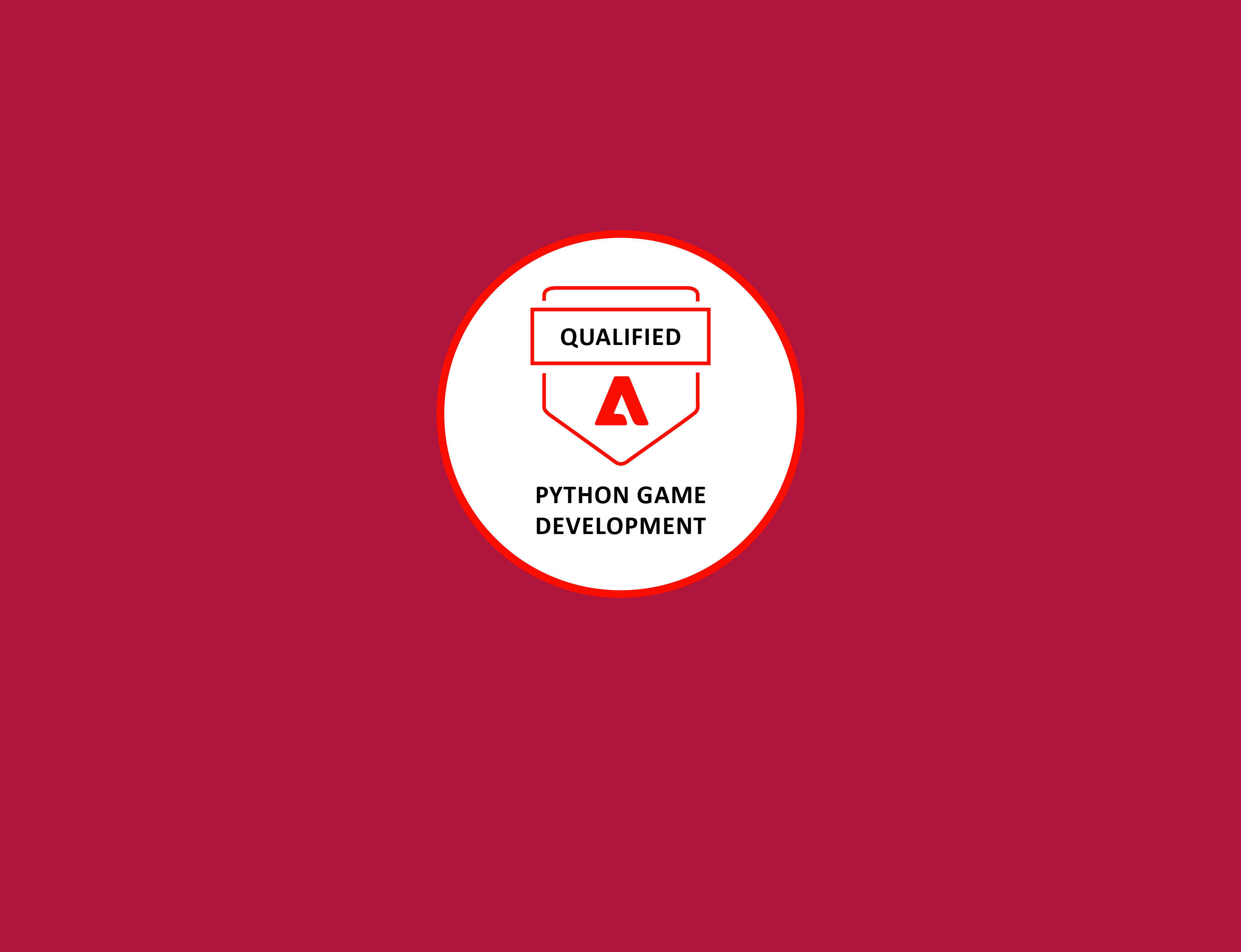Highlight your skills and become Adobe Qualified.
Prove your hands-on experience and gain a competitive edge in your industry by earning a credential through the Adobe Qualified Credential Program.

Prove your hands-on experience and gain a competitive edge in your industry by earning a credential through the Adobe Qualified Credential Program.
Elevate your coding expertise with this advanced certification in Python game development. Designed for learners eager to dive deeper into game creation, this level explores the core principles of game mechanics, interactive design, and problem–solving through Python. By focusing on the development of games that are both educational and entertaining, this certification provides hands–on experience in crafting engaging digital experiences.
Learners will refine their skills through real–world applications, building interactive projects that challenge their coding abilities and creativity. From designing dynamic Python–based games to exploring interactive storytelling, this level offers a comprehensive understanding of game development. The certification prepares participants to tackle complex development tasks and equips them with the tools to create immersive games that captivate and educate, opening doors to exciting opportunities in the gaming and technology industries.
Level 6: Python Game Development is designed for learners who have a solid foundation in programming and are ready to advance their skills in game development. It is ideal for those who are passionate about creating interactive games and seeking to deepen their understanding of Python as a tool for game design.
This certification equips learners with the knowledge and practical experience needed to build dynamic, engaging games. It focuses on essential game development techniques, from coding game mechanics to implementing interactive storytelling. With a strong emphasis on creative problem–solving and real–world applications, this level prepares learners for further exploration in specialised areas such as game development, interactive media, and software engineering. It opens up exciting opportunities in the rapidly growing gaming and tech industries.
Level 6: Python Game Development is a specialised, hands–on certification programme focused on creating interactive and engaging games using Python. Through this modular programme, learners explore key areas of game development, including building Python–based projects, designing game mechanics, and creating interactive narratives using Twine. The modules cover a range of topics, from basic Python game development to more complex interactive storytelling, providing a solid foundation in both coding and creative game design.
This flexible programme allows learners to progress at their own pace, developing essential technical skills while working on real–world projects. By completing the modules, learners will deepen their understanding of Python, improve their problem–solving abilities, and gain the confidence to tackle more advanced game development challenges.
There are three modules:
Each module in the Level 6: Python Game Development certification is assessed through hands–on projects and coding exercises, offering learners the chance to apply both theoretical knowledge and practical game development skills. This flexible structure allows learners to progress at their own pace, enabling them to concentrate on areas that match their personal programming interests and goals.
Upon completing all modules, learners will receive the Adobe Qualified Programming Specialist – Level 6 Certification.
There is no Pass or Fail. Results are reported in Bands 1–4, with Band 4 being the highest. Band 1 indicates a limited understanding of Python game development concepts; Band 2 reflects basic but systematic knowledge; Band 3 demonstrates a solid understanding and practical application of advanced game development skills, and Band 4 signifies a comprehensive mastery of the material.
Level 6: Python Game Development is designed for individuals who are passionate about game development and have a strong foundation in Python programming. This level focuses on refining your coding skills through hands–on game development projects, allowing learners to design and create interactive games.
It is suitable for learners who are: